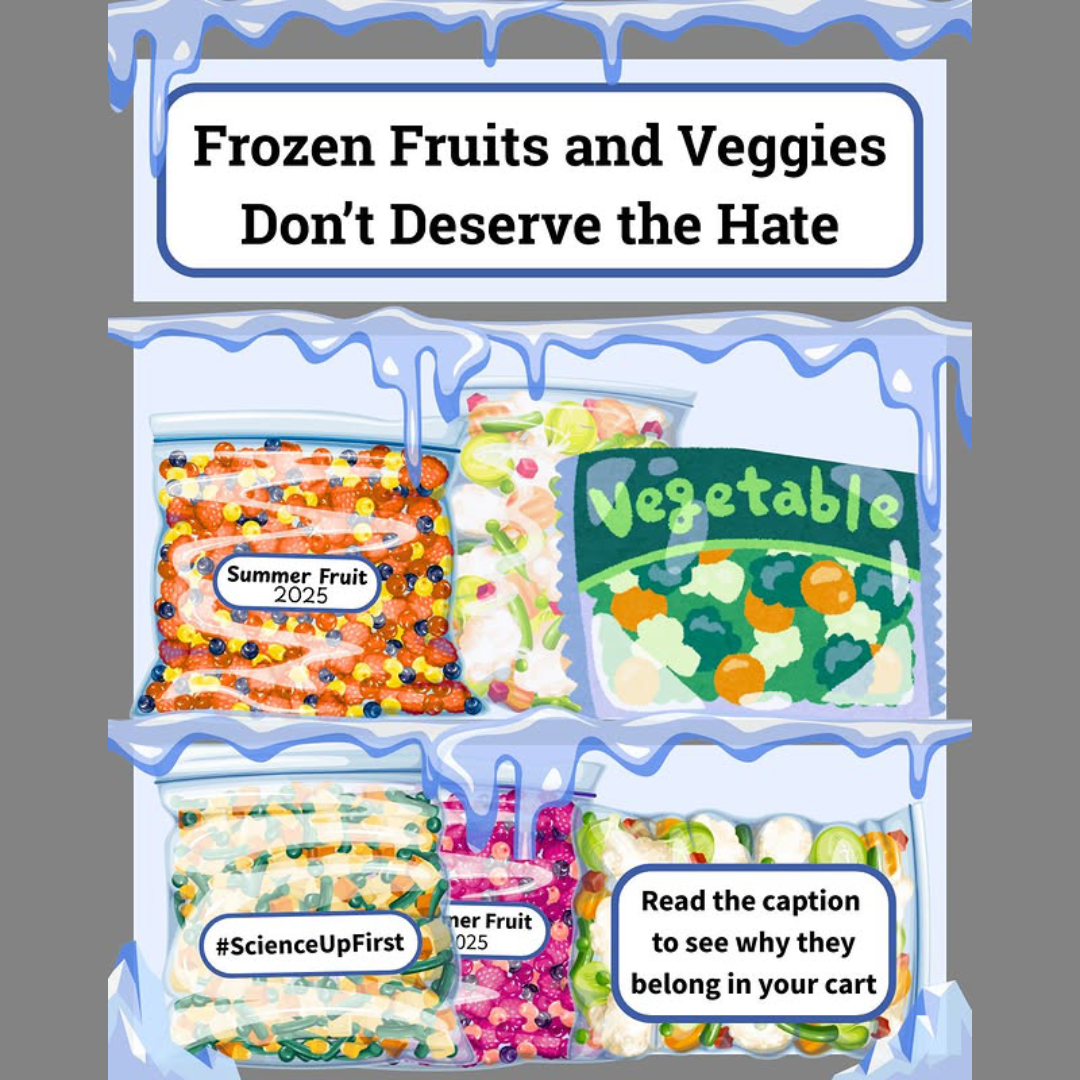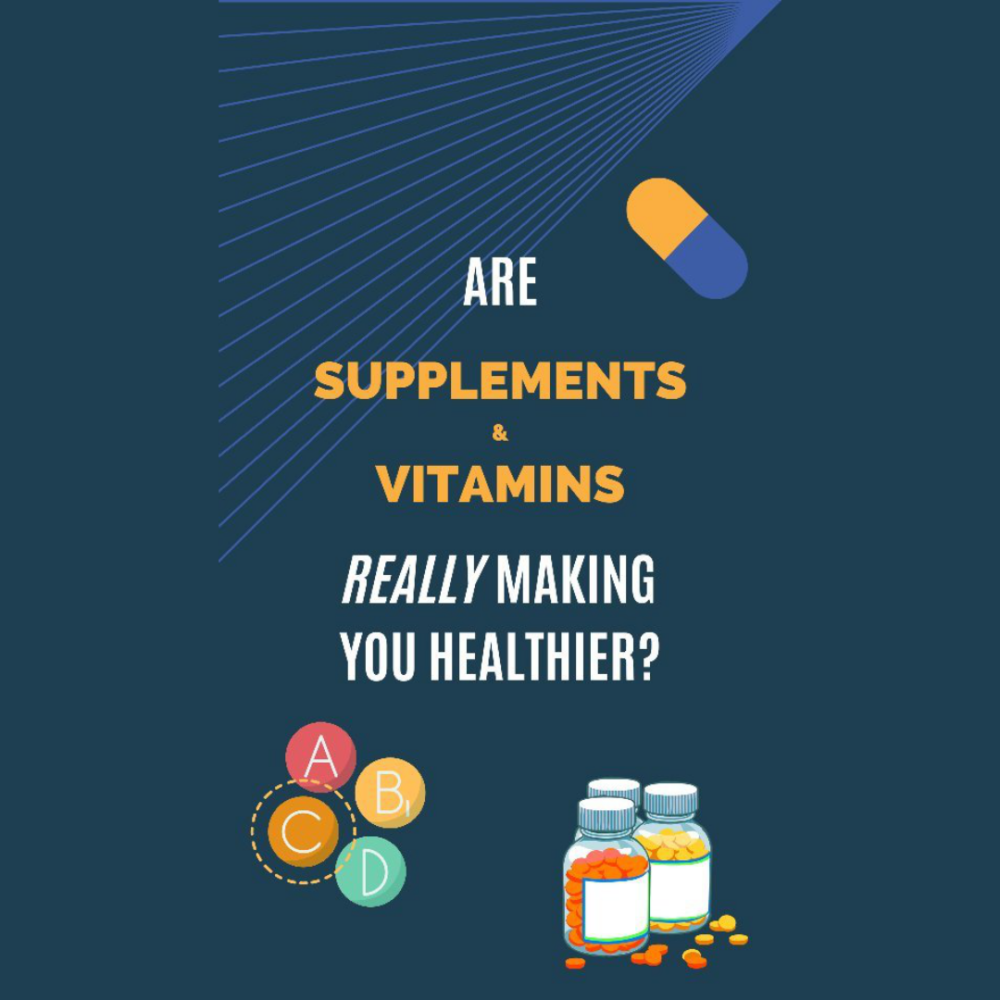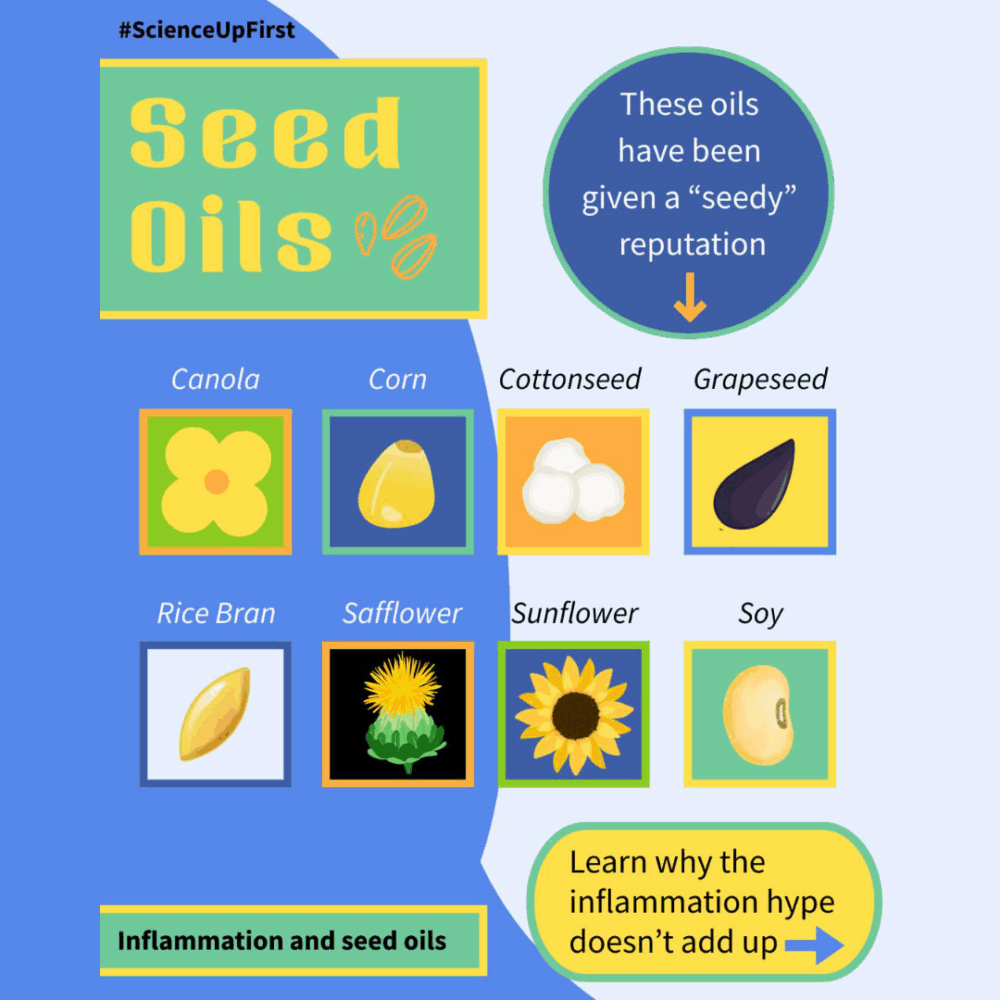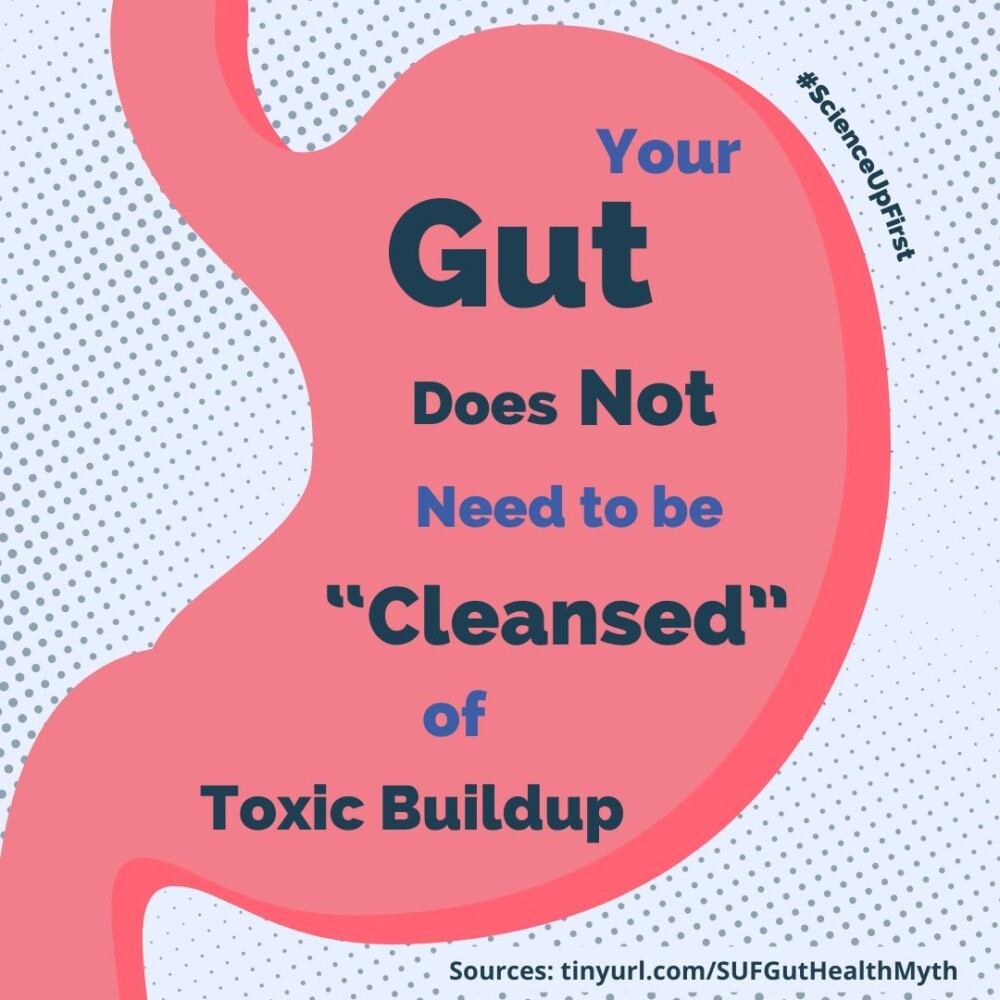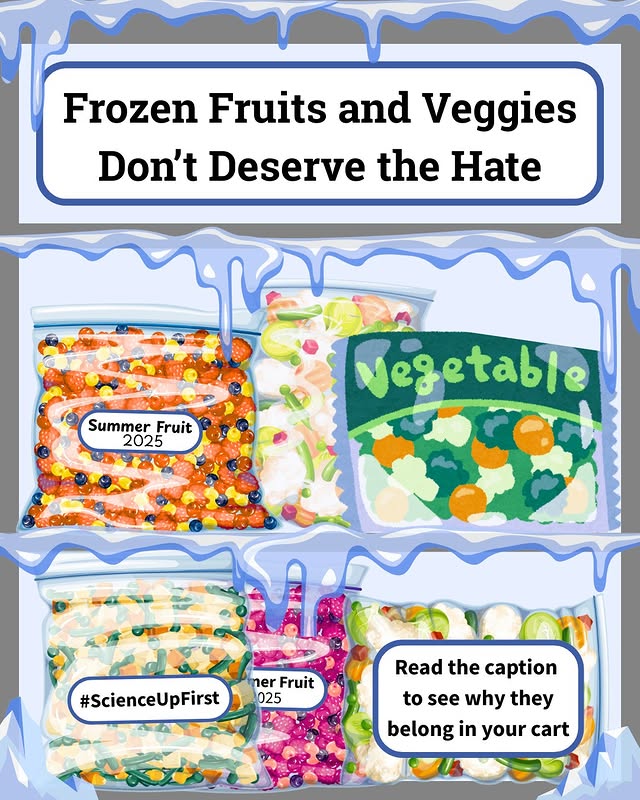
Frozen fruits and veggies are often seen as lower quality or less healthy than fresh ones — but that’s not true!
Because they are picked when fully ripe and frozen shortly after, they contain as much – if not more – nutrients than fresh produce on our grocery shelves (1). Yep, that’s true! Fruits and veggies meant for the fresh aisle are usually harvested a little early so they can handle the trip and ripen on the way – but harvesting them early can also limit the amount of nutrients they will develop. Plus, they often start to lose moisture and nutrients soon after being picked. In some cases, frozen options can have more vitamins than fresh ones that have been sitting in the fridge for a few days (2-6).
Freezing, on the other hand, helps preserve nutrients for months. Some vegetables are briefly boiled before freezing (a step called blanching) to kill germs, which can cause some nutrient losses. But these are minor – about the same as what happens in fresh produce over time. Most frozen fruits don’t go through blanching at all (2,6).
Frozen produce has other perks too! It can be cheaper, especially if you stock up when it’s on sale. You can use only what you need and keep the rest for later, which helps cut down on food waste. Plus, frozen fruits and veggies give you access to more variety year-round — even when they’re out of season (1).
Overall, research shows that freezing helps preserve most of the good stuff and when nutrient losses do happen, they’re usually minor – or comparable to fresh produce (3,4,7,8). So whether you’re grabbing fresh or frozen, you’re still getting a healthy dose of nutrition.
- 10 reasons to buy frozen vegetables and fruits | Canada’s Food Guide
- Fresh vs Frozen Fruit and Vegetables — Which Are Healthier? | Healthline | June 2017
- Nutritional comparison of fresh, frozen, and canned fruits and vegetables II. Vitamin A and carotenoids, vitamin E, minerals and fiber | Journal of the Science of Food and Agriculture | March 2007
- Antioxidants in Fresh and Frozen Fruit and Vegetables: Impact Study of Varying Storage Conditions. | Environmental Quality and Food Safety Research Unit – University of Chester | 2013
- The antioxidant activity and composition of fresh, frozen, jarred and canned vegetables | Innovative Food Science & Emerging Technologies in ScienceDirect | December 2002
- The science of freezing foods | UMN Extension
- Nutrition and Cost Comparisons of Select Canned, Frozen, and Fresh Fruits and Vegetables | American Journal of Lifestyle Medicine on Sage Journals | February 2014
- Mineral, fiber, and total phenolic retention in eight fruits and vegetables: a comparison of refrigerated and frozen storage | Journal of Agricultural and Food Chemistry on PubMed | January 2015
Share our original Bluesky Post!
Frozen fruits and veg are no less nutritious than fresh; sometimes, they're even more so. Harvested when ripe + frozen quickly = preserved vitamins, less waste, and year round availability. ❄️ 👉https://scienceupfirst.com/nutrition/frozen-fruits-and-veggies-dont-deserve-the-hate/ #ScienceUpFirst
— ScienceUpFirst (@scienceupfirst.bsky.social) June 27, 2025 at 11:11 AM
[image or embed]
View our original Instagram Post!

